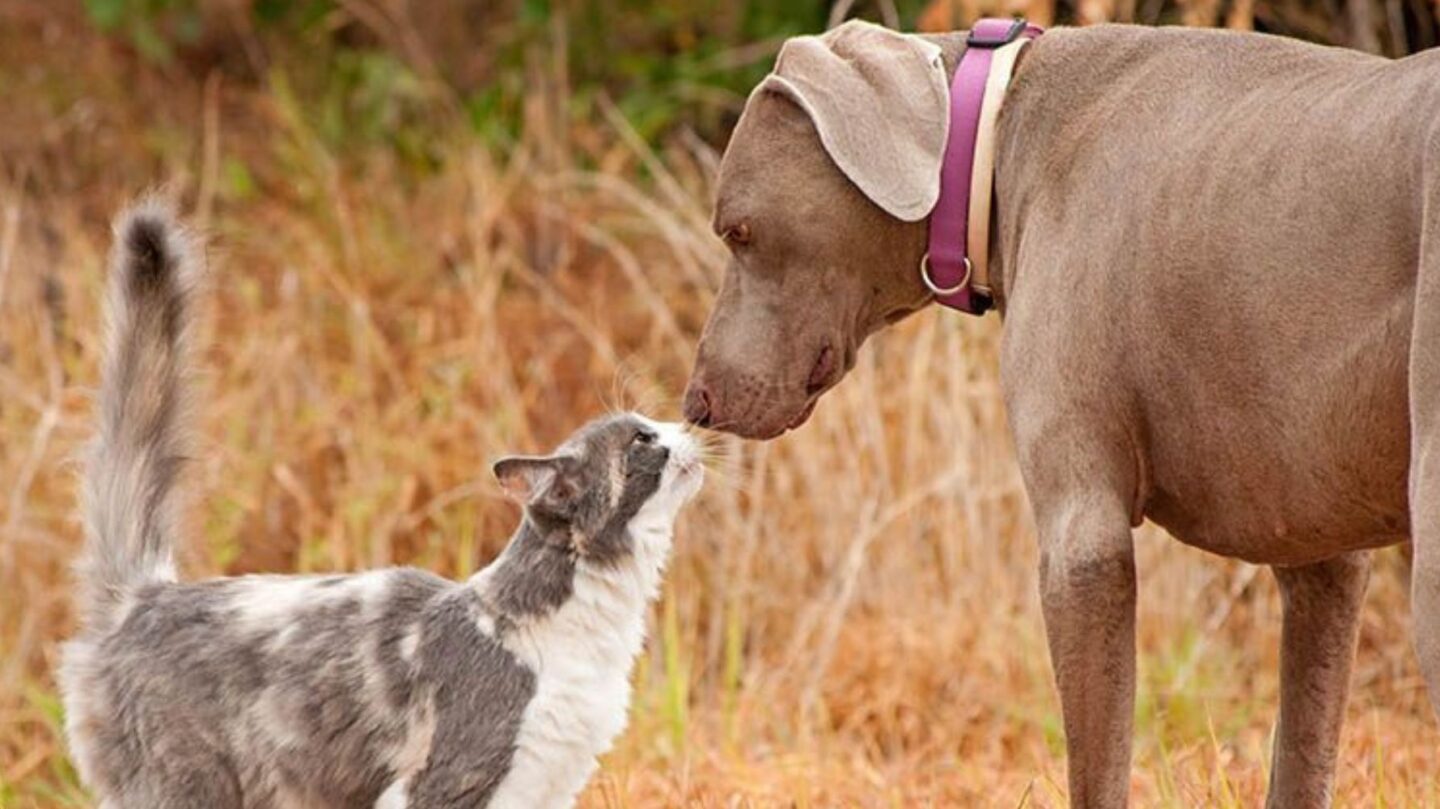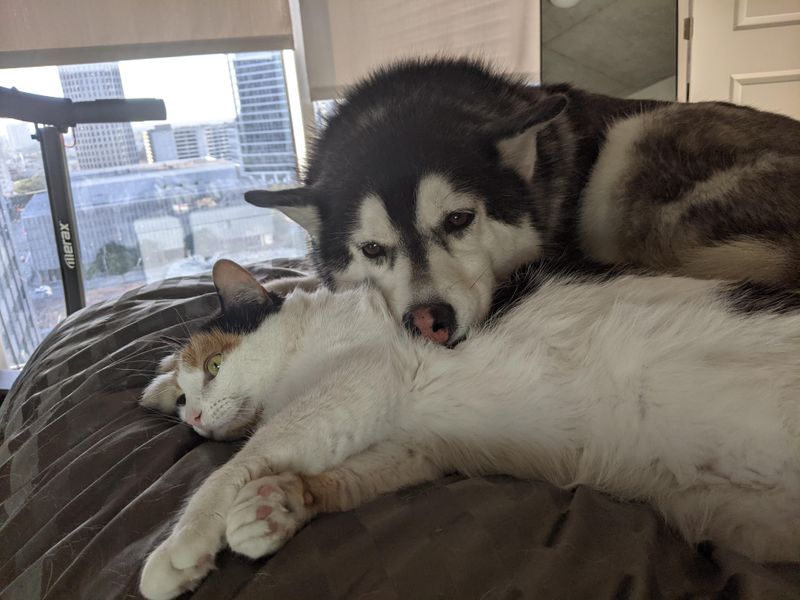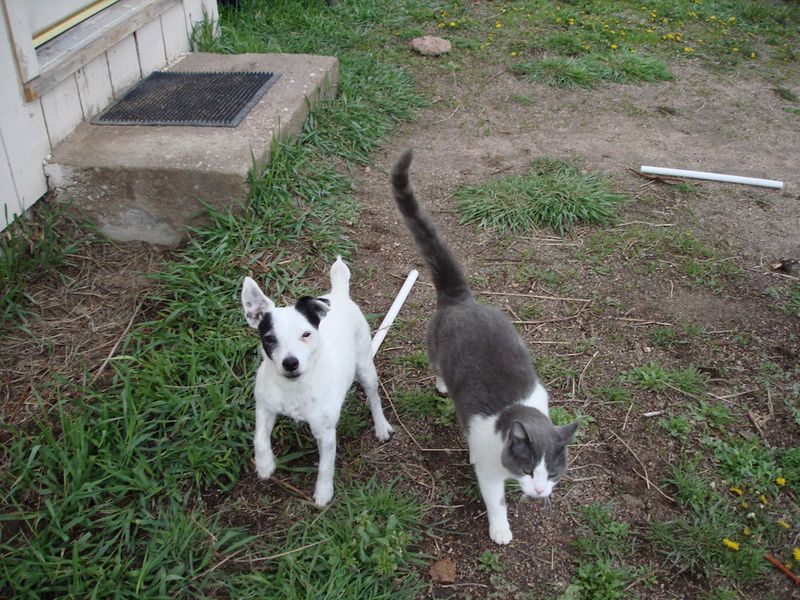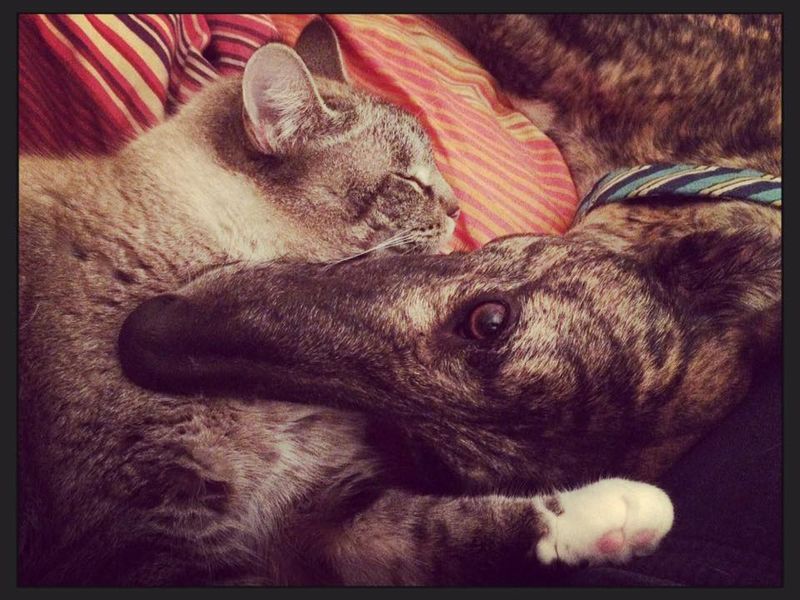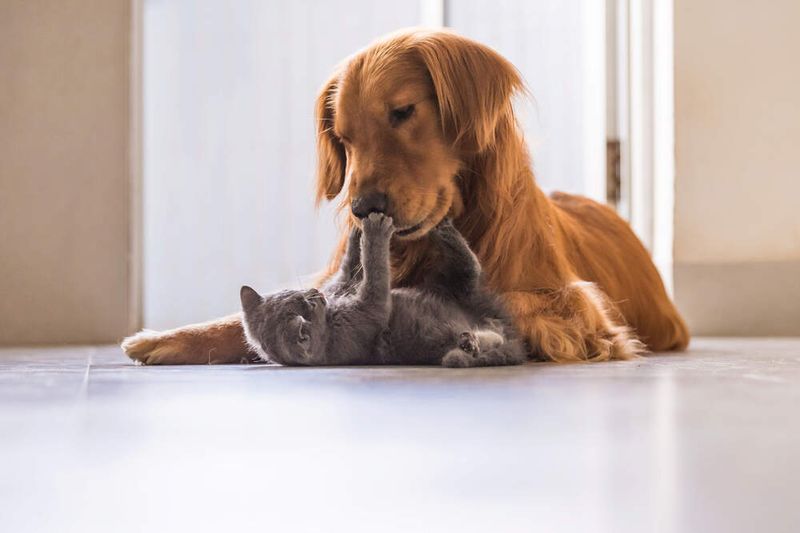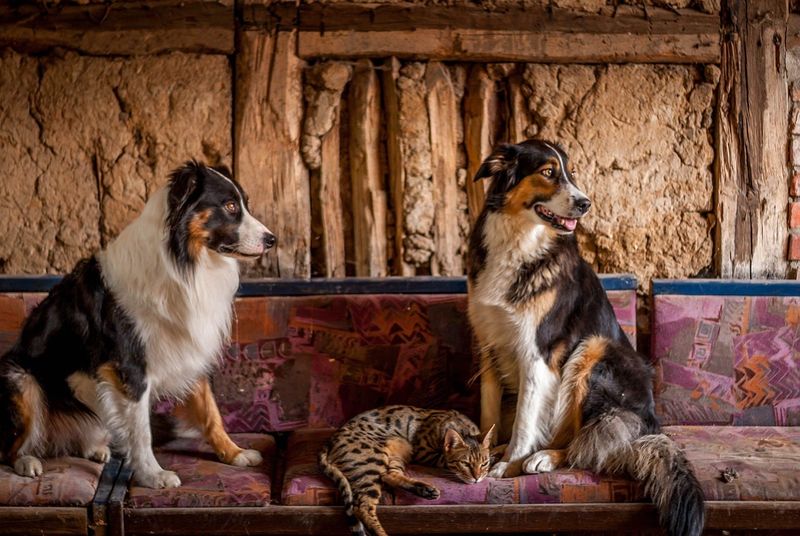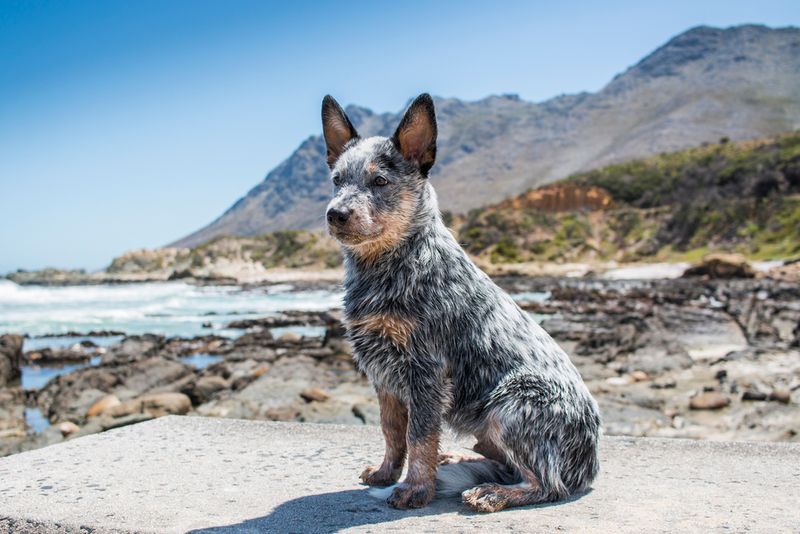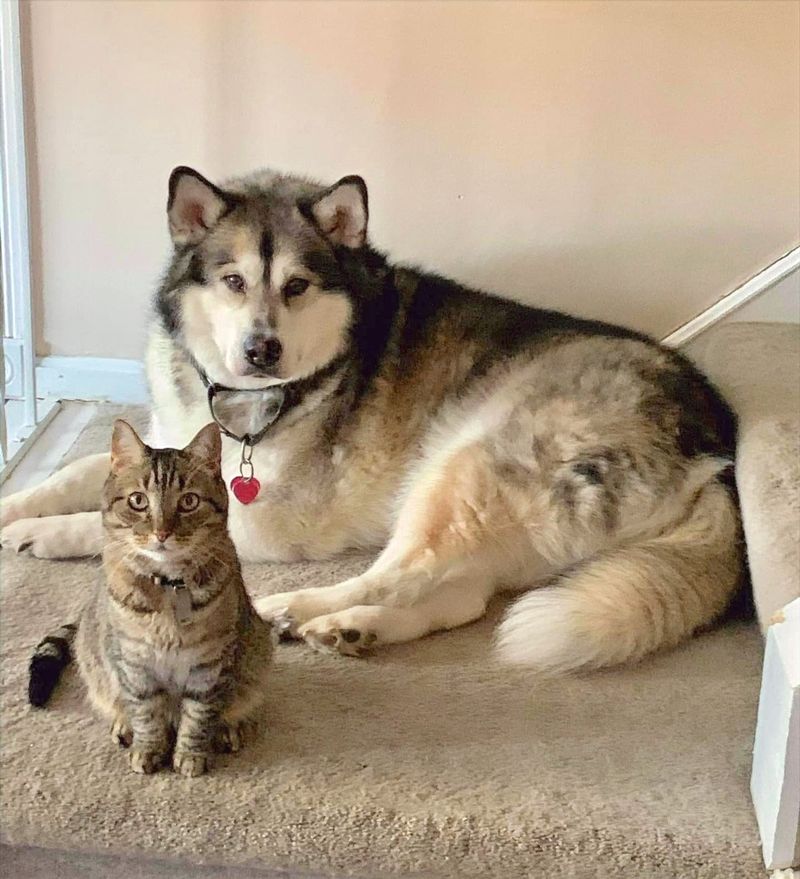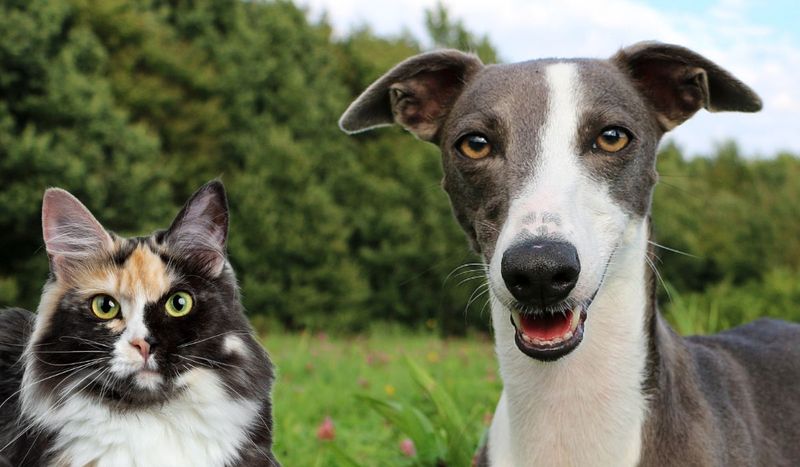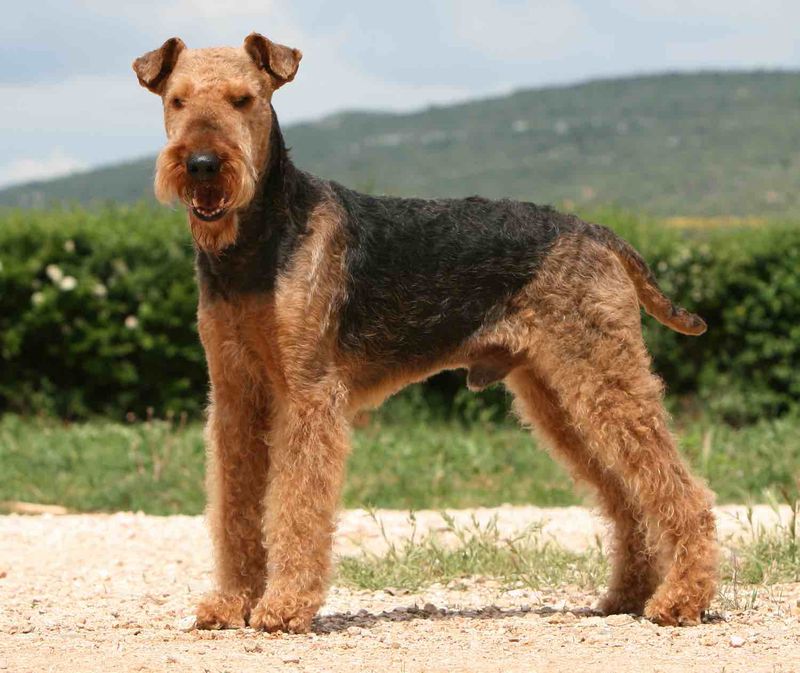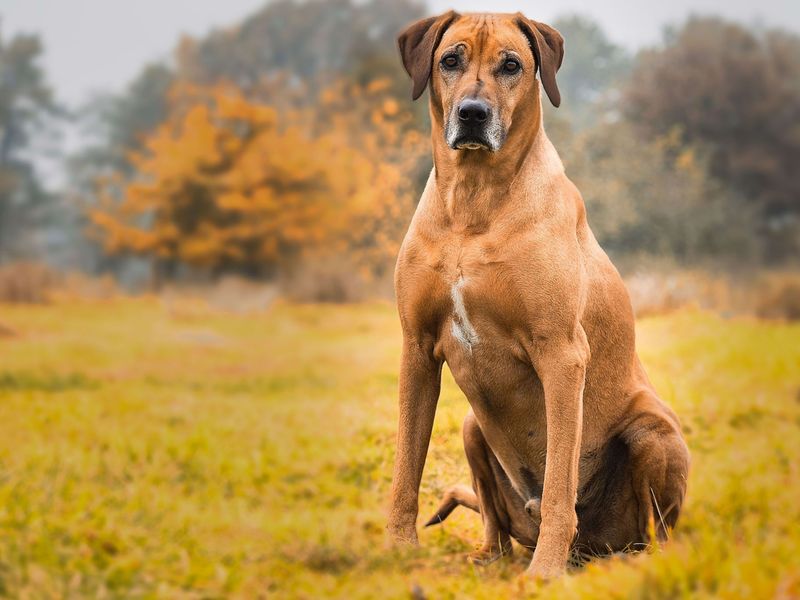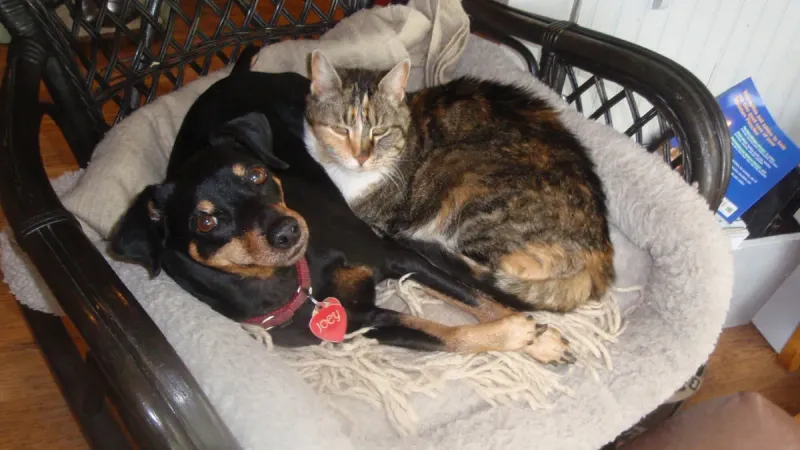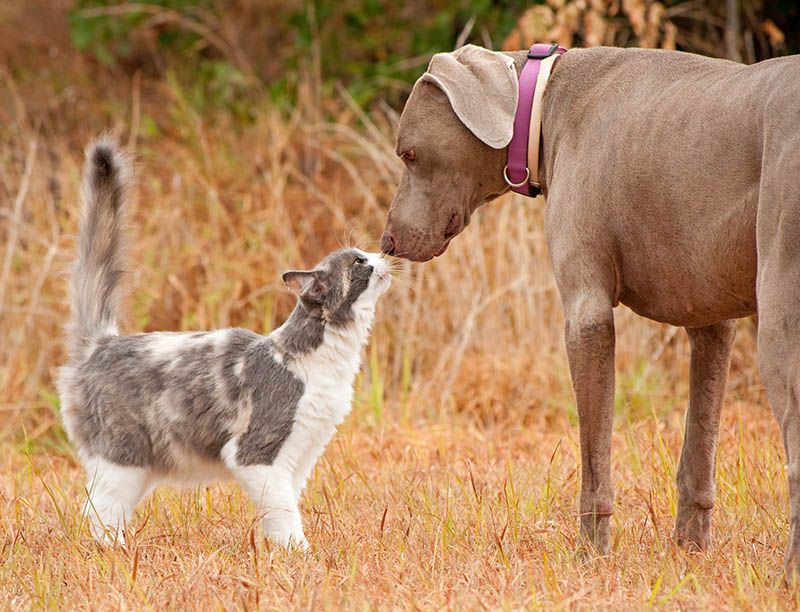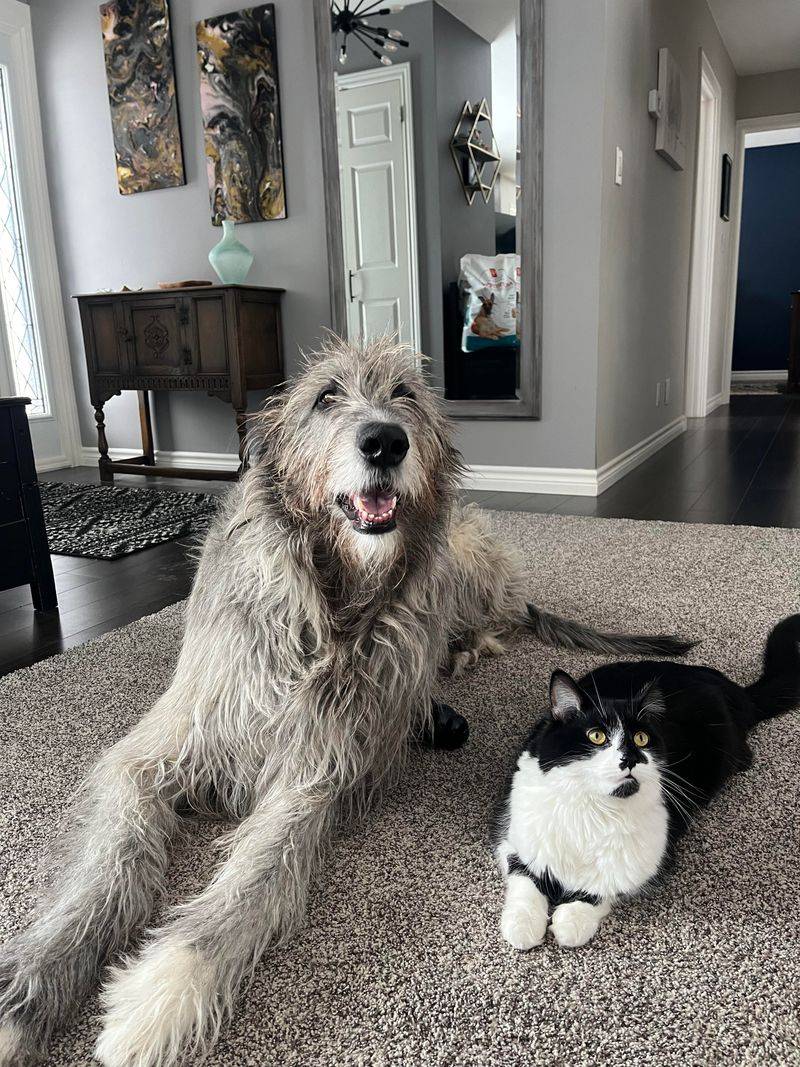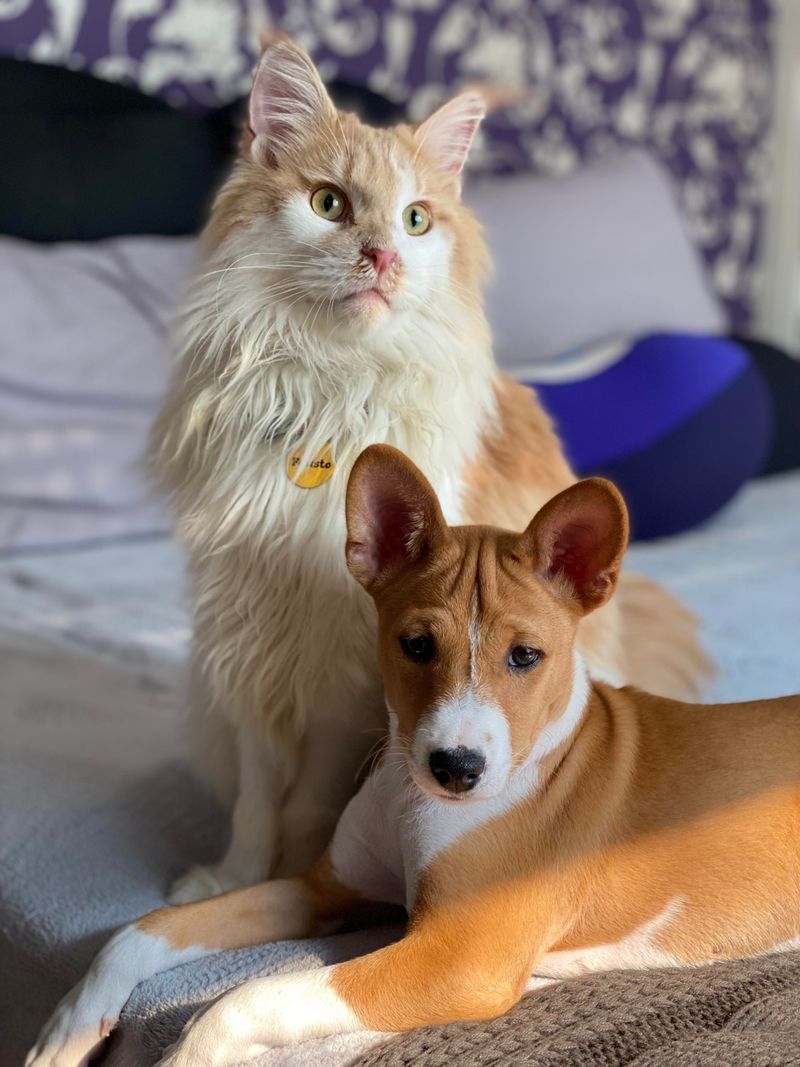In the world of canine companionship, not all dogs are created equal, especially when it comes to cohabitating with smaller pets. Certain breeds possess a strong prey drive, making them more inclined to chase, hunt, or even harm smaller animals. This article explores 15 dog breeds that, while lovable in many ways, may not be the best choice for homes with small pets. From their historical roles as hunters to their instinctual behaviors, understanding these breeds can help pet owners make informed decisions about their household dynamics.
Siberian Husky
Siberian Huskies, with their striking blue eyes and wolf-like appearance, are known for their independent spirit and strong prey drive. Originally bred as sled dogs, they are highly energetic and love to run. This energy can translate into a tendency to chase smaller animals.
Their instinctual behaviors, rooted in their history as hunters, make them less suited for homes with small pets like rabbits or cats. Despite their friendly and outgoing nature towards humans, Huskies’ intense curiosity and high energy levels often lead them to pursue anything that moves.
Jack Russell Terrier
The Jack Russell Terrier, small but mighty, is a bundle of energy and enthusiasm. Bred for hunting foxes, their instincts are finely tuned to chase and dig. This makes them less reliable around smaller animals, as their hunting drive is strong.
Their spirited nature and quick reflexes mean they might view smaller pets as prey, rather than companions. Their intelligence and agility are impressive, but these traits can lead to trouble if not properly managed.
They thrive on activity and stimulation, which can sometimes clash with the needs of more sedentary small pets.
Greyhound
Greyhounds are renowned for their speed and grace, often found on racetracks. However, their history as coursing hounds gives them a high prey drive, making them less suitable for homes with small pets. When they see a small, fast-moving animal, their instinct is to chase.
Despite their gentle and docile nature at home, they can become incredibly focused and driven outdoors.
Greyhounds are affectionate companions but require careful supervision around small pets to prevent any unintended mishaps due to their natural instincts.
Dachshund
With their distinctive long bodies and short legs, Dachshunds were originally bred for hunting badgers. Their fearless and independent nature makes them adventurous and occasionally stubborn, which can be problematic around smaller pets.
They are tenacious and love to dig and chase, traits that can pose a risk to tiny animals.
While charming and playful, their hunting background means they may see smaller creatures as targets rather than friends, necessitating careful integration into multi-pet households.
Beagle
Beagles, with their soulful eyes and merry demeanor, are beloved family pets. However, their history as scent hounds makes them less reliable around small animals. Their noses are their guides, and they possess an insatiable curiosity for tracking scents.
This often leads them to chase after smaller creatures. Despite their sociable nature, Beagles require supervision around small pets to ensure harmony.
Their inherent desire to follow scents can sometimes cause unintended chaos in a household with diverse animal species.
Border Collie
Border Collies are renowned for their intellect and herding abilities, often considered one of the smartest dog breeds. Their herding instinct can, however, extend to smaller pets, which they may attempt to chase or nip.
Their high energy levels and drive for work mean they need constant engagement, which can be disruptive to smaller, more passive animals.
While they excel in obedience and agility training, their interaction with tiny pets requires careful monitoring to prevent herding behaviors from taking over.
Australian Cattle Dog
The Australian Cattle Dog, known for its drive and determination, is a stalwart worker with a strong instinct to herd and chase. This breed’s energy and focus, while excellent for farm work, can pose challenges with small pets.
Their tendency to nip at heels as part of their herding behavior can be concerning around tiny animals.
Their loyalty and intelligence make them excellent companions, but their need for physical and mental stimulation requires a pet owner attentive to the potential risks with smaller pets.
Alaskan Malamute
Alaskan Malamutes, majestic and strong, are known for their endurance and independence. Like their Husky cousins, they were bred for sledding and have a high prey drive. Their large size and strength make them formidable hunters, often viewing smaller animals as potential prey.
These dogs are affectionate with humans but require careful supervision when introduced to small pets.
Their history as pack animals means they thrive in social settings but their natural instincts need management to ensure peaceful cohabitation.
Whippet
Whippets, often called the “poor man’s racehorse,” are celebrated for their speed and agility. Their sighthound origins give them a strong prey drive, and they excel at chasing. This trait can make them less trustworthy around small pets, which they might see as targets.
Despite their gentle demeanor at home, their instinctual urge to pursue moving objects is powerful.
Whippets are loving and calm companions but require diligent training and supervision to ensure they coexist peacefully with smaller animals.
Airedale Terrier
Known as the “King of Terriers,” the Airedale Terrier is both athletic and intelligent. Their background as hunting dogs equips them with a strong prey drive. This can lead to unpredictable interactions with smaller pets, as their curiosity and determination are significant.
They are versatile and trainable, thriving on activity and mental challenges.
However, their instinct to chase and investigate can be overwhelming for tiny animals, requiring owners to be cautious and proactive in managing their environment.
Rhodesian Ridgeback
The Rhodesian Ridgeback, with its imposing stature and unique ridge of hair, was originally bred to hunt lions in Africa. Their courage and strength make them formidable, but also present challenges in homes with small pets.
Their hunting instincts can lead them to see smaller animals as prey, necessitating supervision and proper introductions.
Despite their powerful presence, they are known for their loyalty and protective nature. However, their interactions with small pets should be monitored to avoid unintended consequences.
Miniature Pinscher
The Miniature Pinscher, often called the “King of Toys,” is a small dog with a big personality. Their bold and curious nature can sometimes lead to trouble, especially with smaller pets.
Originally bred to hunt vermin, their instincts are sharp, making them less predictable around tiny animals. Their fearless demeanor and high energy can overwhelm smaller pets, necessitating care and supervision.
Despite their size, they are spirited and tenacious, demanding attentive handling to ensure peaceful living conditions with other household animals.
Weimaraner
Weimaraners, with their distinctive silver coats, were bred as hunting dogs, making them energetic and driven. Their keen hunting instincts can make them unreliable around small pets, as they are naturally inclined to chase and capture.
Their intelligence and need for activity require engagement and supervision to prevent unwanted incidents.
While they are affectionate and loyal companions, their interactions with small animals must be managed carefully to avoid conflicts born of their instinctual behaviors.
Irish Wolfhound
The Irish Wolfhound, one of the tallest dog breeds, is both gentle and imposing. Bred to hunt wolves, their history gives them a high prey drive, which can be problematic with small pets.
Their size and strength can easily overwhelm tiny animals, even unintentionally. Despite their calm demeanor, their hunting instincts remain prominent.
They require careful management and training to ensure they coexist harmoniously with smaller creatures, emphasizing the need for mindful introductions and controlled environments.
Basenji
With an independent spirit akin to that of a cat, the Basenji is a unique and ancient breed. Known for its lack of bark, this “barkless dog” communicates through yodel-like sounds. Its keen hunting instincts make it a formidable chaser of smaller animals. This breed’s curiosity and intelligence are unmatched, yet they require constant supervision around small pets.
A fun fact about the Basenji is that it originates from Central Africa and was once used to control village rodent populations. Owners should be aware that these dogs thrive in environments where they can safely express their natural behaviors.
